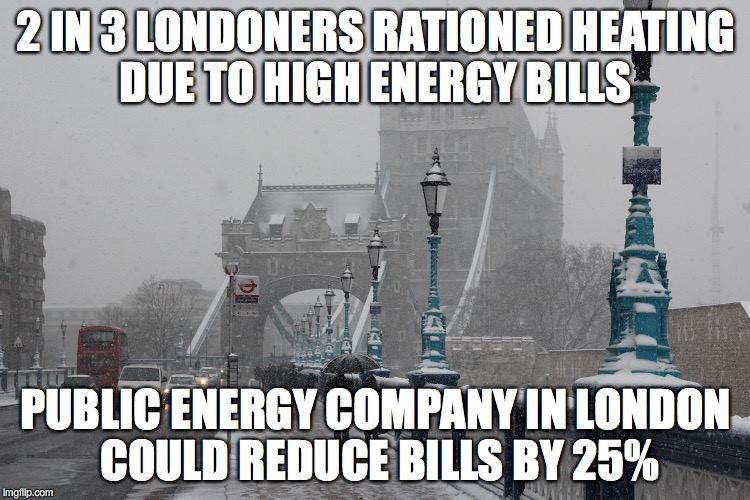Switched on London is a grassroots organisation that promotes just and democratic solutions to climate change.
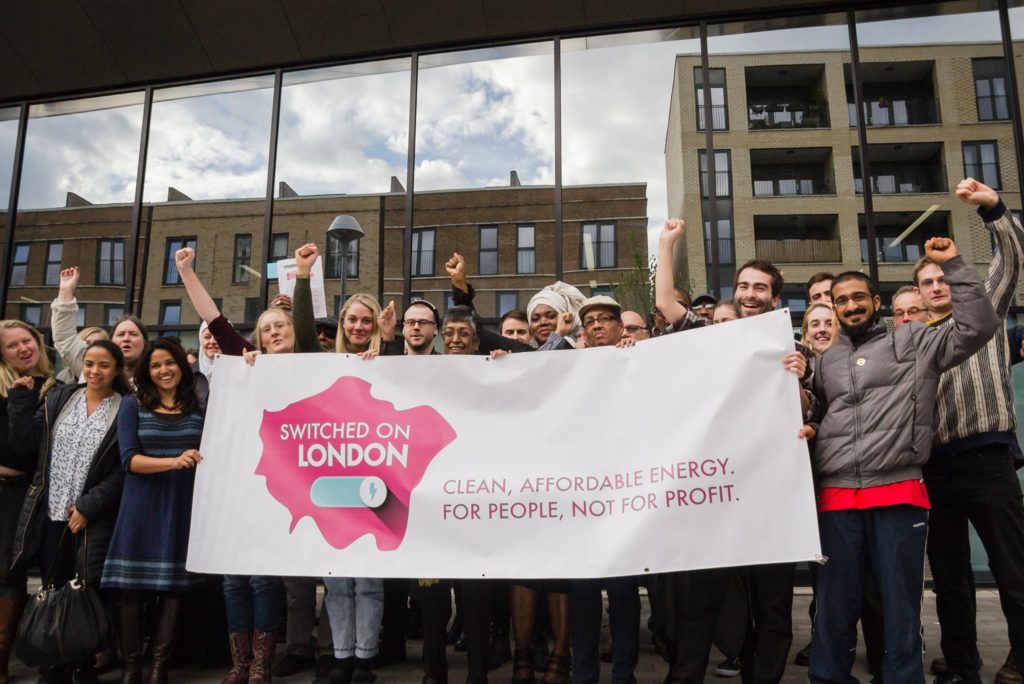
London faces the biggest crisis in recent memory. Burning fossil fuels is destroying the climate, deep rooted inequalities divide the city and many voices are not being heard. Climate change demands wholesale transformation – social, economic and cultural. London played a pivotal role in creating the fossil economy – and wittingly or not, its citizens are still driving it today.
Switched On London
Their Theory of Change breaks down into four main components:
1. Pressure from Below
They believe to achieve energy democracy and the transformation of the city, economic and political transformation is needed at a range of scales. They know it is not possible – nor desirable – for some of the large-scale transformations to take place in isolation from the state. Therefore, SOL believes both political and civil society actors will be pivotal in driving this change.
Without sustained and coordinated pressure from below – individuals, communities, workers, organisations and institutions organising together in new, innovative networks, to resist and disrupt existing systems, while working towards building an alternative system – they believe government and decision makers will lack the ambition and leadership required to achieve systemic transformation of the system and will continue to advance elite interests.
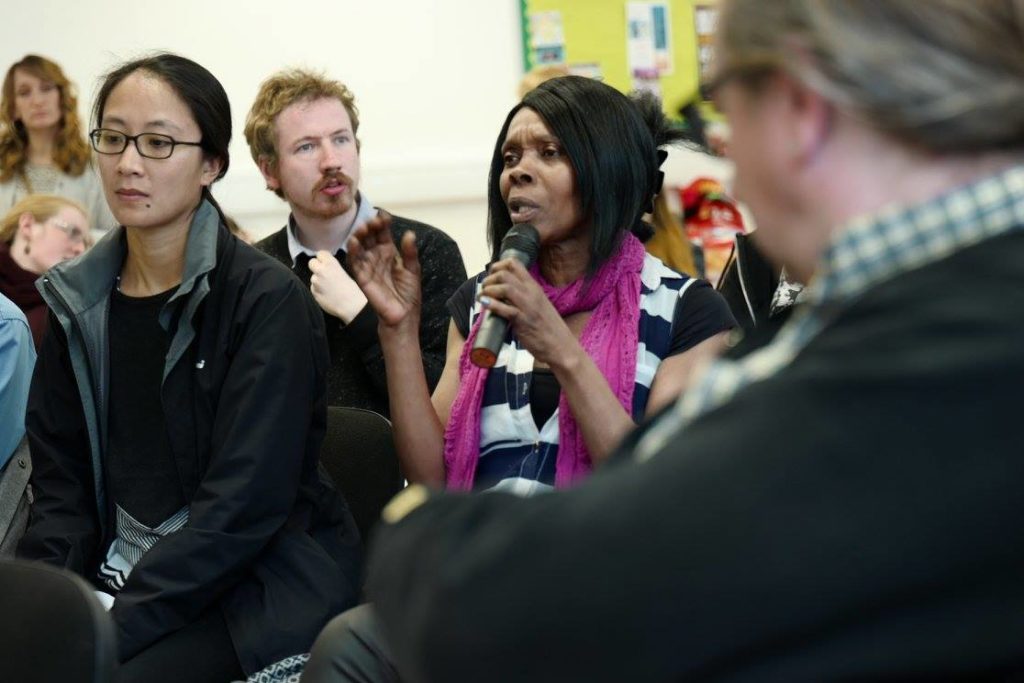
2. Action from Above
Local, regional and national government and decision makers utilising their powers to create the policy and legislative framework needed for energy democracy and take necessary infrastructure and resources back into public control while providing mass investment in new systems and technology – will be essential for achieving energy democracy. SOL believe the scale and speed at which Action from Above takes place is tangent on their ability to build strong, coordinated and sustained Pressure from Below.
3. Building concrete, positive alternatives
The SOL crew believe to achieve energy democracy and a just transition they need to be proposing and winning concrete, positive alternatives which can improve people’s lives while providing a stepping stone to an alternative system. These alternatives can offer hope and a realisation that things can change, galvanising people to take action in support of a just, sustainable and democratic energy system.
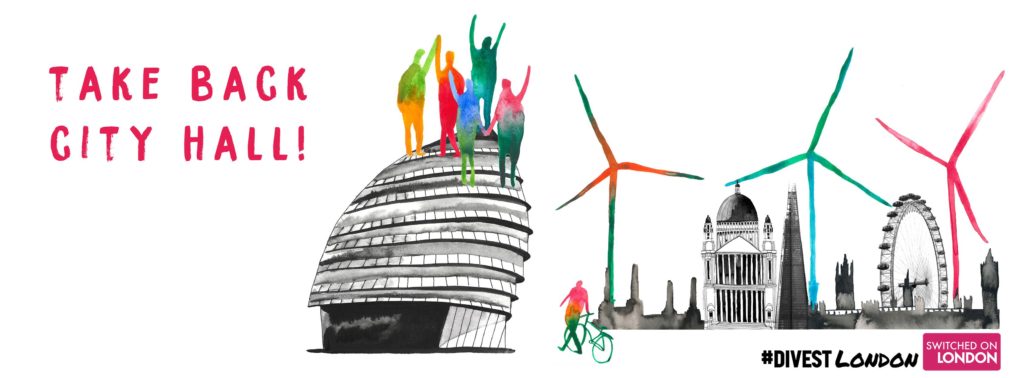
4. Municipality
A new municipalism agenda is sweeping cities across the world. Across Europe, cities are beginning to reverse privatisation by taking utilities and services back into public ownership and supporting local economic and political transformation. They want to focus on impact at the municipal level – providing a space to escalate new ideas and models, while still remaining accessible and tangible to people most affected by decisions on energy and the inequalities created by the current economic and political system.
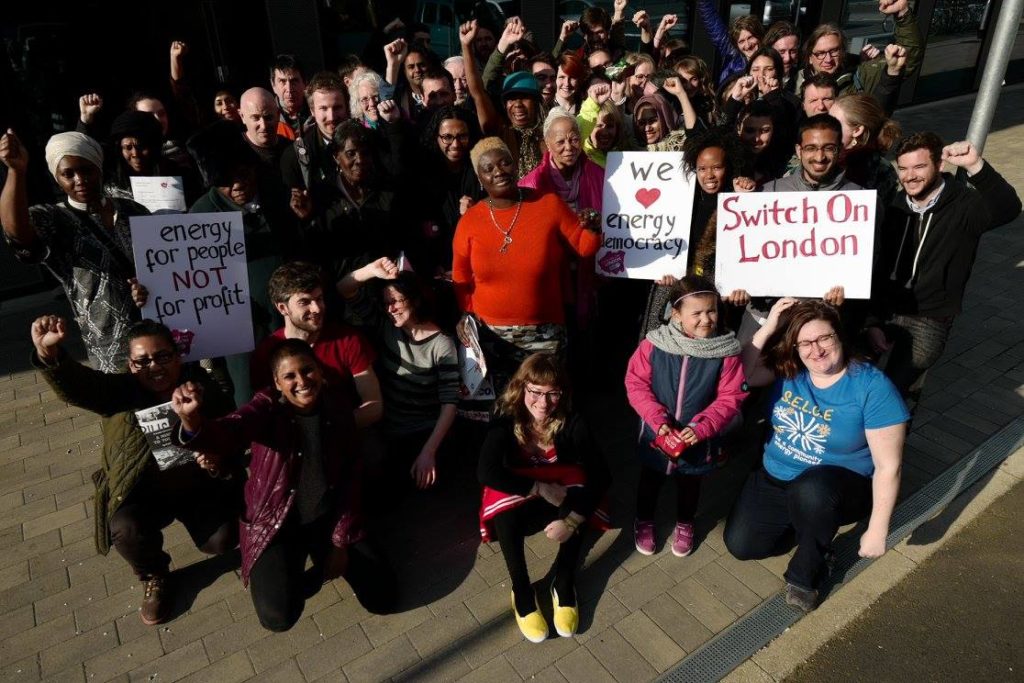
The Guerrilla Grant
The grant will be used to fund the relatively new strand of work – the London Leap. Inspired by the Canadian Leap Manifesto, working in partnership with arts-activist organisation Platform, SOL plan to bring together at least 50 London organisations, community groups and individuals to create a manifesto that articulates the economic transition London needs in response to the climate crisis. The manifesto would serve as the basis for the creation of a new network of activists and organisations that organises together to win ambitious changes in London that tackle climate change and transform the city. The London Leap would be based on people’s ability to live well and overcome everyday issues – warm and decent homes, healthy air, clean, affordable and democratically-controlled energy – as well as addressing the urgent need to cut London’s carbon output. The London Leap will reset the city’s climate ambition, reinvigorate the climate movement and mobilise key communities and organisations around climate justice.
The London Leap project has three main goals:
1) Story – To reframe effective climate action as a systemic transformation towards a fair and democratic economy.
2) People – To shift how climate and social justice organising is conducted in the UK, thus increasing the diversity of organisations and people organising on climate change in London.
3) Winning – To win ambitious changes in London that transform the city and galvanises bold action elsewhere
